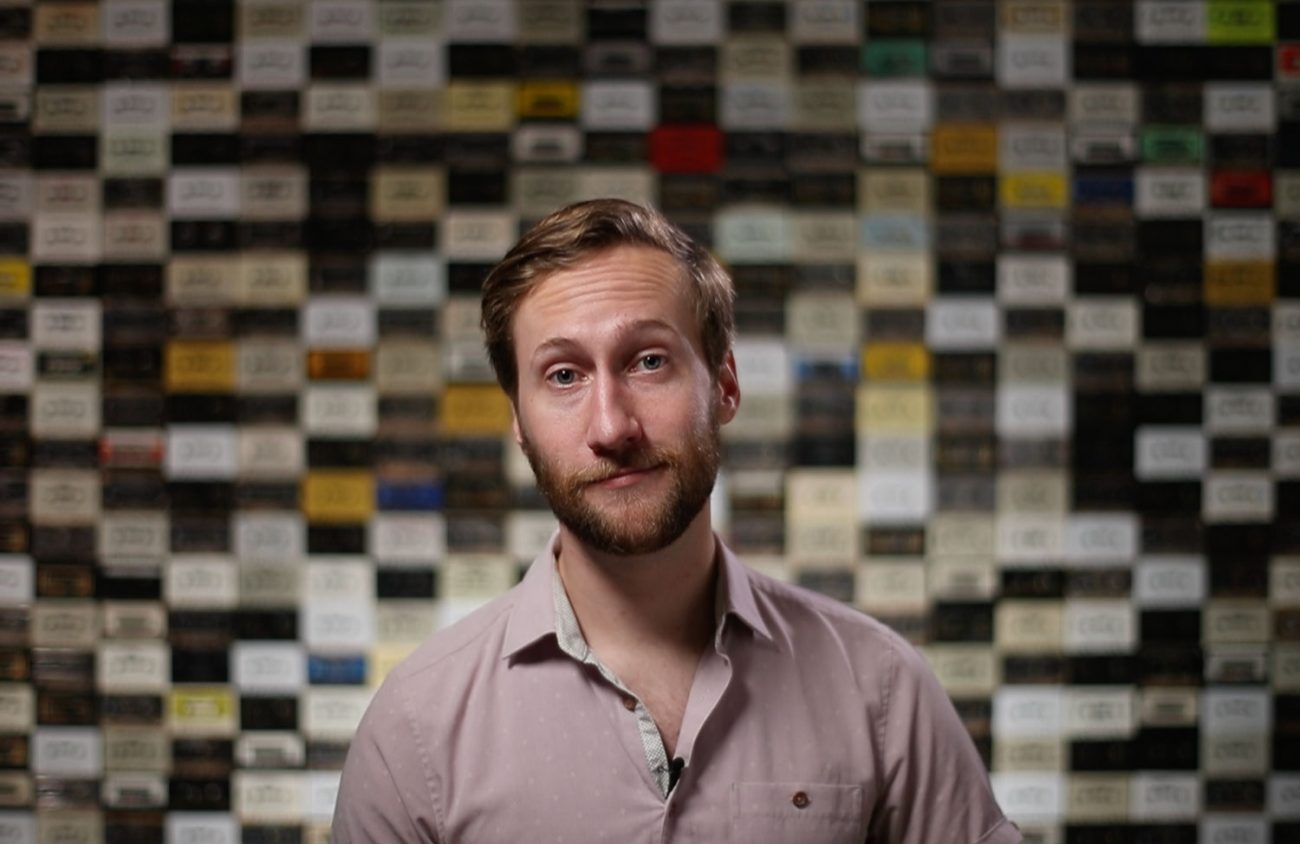Radiolab’s Simon Adler grew up at the tail end of the reign of the cassette tape, and the only tape he says he remembers receiving growing up was by the Backstreet Boys for Easter one year.
Adler, an alum of the University of Oregon, has dug deep into the history of the cassette tape. His five-part Radiolab series titled MIXTAPE looks at events where tapes went beyond the stereo, from fueling a revolution to revitalizing Bing Crosby’s career.
“They’re the first on-demand media you could consume,” Adler says about cassette tapes. “It was the first thing you could take, put in your ears and listen just by yourself whenever you fucking wanted to.”
His research started with self-help cassette tape sets or, as Adler says, “podcast pioneers.” He says he got fascinated by how cassette tapes were being used throughout the world, a technology seen by most people today as a transition from vinyl to CD. “It turned out that this little piece of plastic was more important than I could ever imagine,” he adds.
One instance where the cassette became literally revolutionary was its role in the Iranian Revolution.
In 1978, Iranian Ayatollah Ruholla Khomeni lived in exile outside of Paris. Adler says the ayatollah wanted to keep sending information to Iran, so he recorded his sermons onto a cassette tape. Someone with the phone company would then set up a conference call in Iran. Then the sermon would be run over the phone line, and people in Iran would have it go to an answering machine and would capture it.
“One number I saw was that there were 20,000 different mosques and centers that were recording and passing this information around,” Adler says. “So this guy who’s thousands of miles away from the revolutionary action in Tehran suddenly is present in everybody’s lives because of these cassettes.”
Cassettes tapes are easily duplicated, he adds, so Khomeni’s sermons were passed around, resulting in his becoming the de-facto leader of the revolution, despite being physically in France.
“What he was able to capitalize there, as Donald Trump did, was make intimate connections with people who were interested in him,” he says. “And talking to them not in a polished way of politicians but in a rural vernacular that people connected with. Suddenly, this man who was basically forgotten in 1977 was seen as a leader and hero of this revolution.”
Adler’s Radiolab series also includes episodes about how the cassette tape brought rock ‘n’ roll to Communist China, how it saved Bing Crosby’s career, carried a village history for boys fleeing violence in South Sudan and its role in the Vietnam War.
Even though audio is in the streaming age, where listeners rely on services such as Spotify and Apple Music, the cassette tape is still around. Although many music collectors have returned to vinyl, some are also buying cassette tapes, and independent music labels are distributing albums on cassette, such as the Seattle-based label Den Tapes.
He probably doesn’t have that Backstreet Boys cassette Easter gift anymore, but he does have a cassette collection that started with sets on amateur piloting and an IT professional’s guide to Windows 95 — about 400 to 500 tapes.
Adler uses the collection to write music in the electronic musical genre vaporwave. In addition to production and reporting, he also scored the music for MIXTAPE.
Speaking of music, while attending the UO, Adler says he played alto saxophone in a ska band that he doesn’t remember the name of and guitar and sang in indie rock band Winter Time Carousel, and he and his bandmates were always trying to get into Eugene Weekly. “I’m honored to have finally made it,” Adler says.
MIXTAPE has new episodes weekly, from Friday, Oct. 22, through Friday, Nov. 19. Radiolab airs 10 am Sundays on 89.7 KLCC and is available wherever you listen to podcasts.
